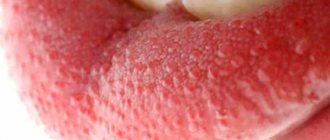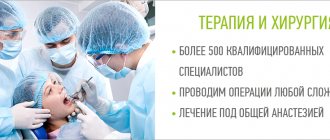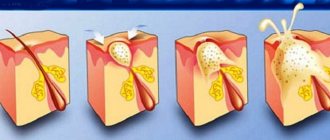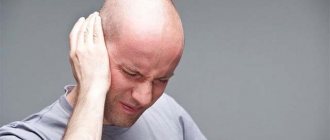The lymphatic system is the protective barrier of the entire human body and is the first to encounter germs and viruses that can infect a person.
The general function of the lymphatic system is to destroy bacteria and viruses that enter the blood from outside. As soon as the virus enters the body, the lymphatic system immediately begins to react to this with peculiar processes.
- Causes of inflammation of the lymph nodes Diagnostic methods
- Can a child's lymph node become inflamed?
One possible reaction may be inflammation of the lymph node behind the ear, in the groin area or on the neck. The lymph system is as important for the body as the circulatory system. It helps to cleanse the cells and tissues of the body, and also regulates metabolism in the body.
Symptoms of pathology
The fact that a person has “caught” a lymph node usually means its increase in size. Occasionally it hurts, and the skin over it becomes red. In this case, doctors talk about lymphadenitis.
An important point is the mobility of the lymph node. Normally, it easily moves a short distance. If the lymph node is motionless and enlarged, a doctor’s consultation is urgently needed.
Not all lymph nodes can be examined independently. When magnified, they can be felt on the neck, under the armpits, and in the groin area. It is important where the inflamed area is located. If a lymph node in the neck has caught a cold, how to treat it will differ from the situation when the groin or axillary area is affected. By localization, one can judge a preliminary diagnosis, since lymphadenopathy is often only a symptom of the underlying disease.
Features of the parotid lymph nodes
Parotid lymph nodes are those located in front of the ear, running along the tragus from top to bottom from the side of the cheek
The parotid lymph nodes react acutely to the presence of an infectious pathogen in the human body. It is possible that the disease that caused the inflammation of these formations does not pose a serious threat to health or life. But also, enlargement of the lymph nodes in this part of the body can occur due to the development of a dangerous pathology, which, if progressed, leads to serious complications.
Anatomy and physiology
The parotid lymph node is located in the front of the ear, in a place that is close to the cheekbone and cheek. The second node can be felt closer to the lobe, behind the auricle.
Normal sizes
Inflammation of the lymph nodes located in front of and behind the ear can be determined by their size. In a healthy state, they are much smaller than the structures that are located in the neck or groin area.
The parotid lymph node, which is located on one side, has a size of 3-5 mm. This is the norm for men and women. If the lymph node undergoes an inflammatory process, it increases to 3 cm or more.
What diseases does it occur in?
First, you need to look for inflammation near the affected lymph node. Usually bacteria or viruses enter it from a nearby organ.
Diseases in which the cervical lymph node becomes inflamed:
- acute respiratory infections and acute respiratory viral infections;
- tonsillitis (acute or chronic);
- dental diseases (focus of infection in the mouth).
Enlarged inguinal lymph nodes are often associated with sexually transmitted diseases, including herpes infection. Axillary units are inflamed with hidradenitis - a pathology of the sweat glands.
Sometimes inflammation of the lymph node occurs against the background of a general weakened state of the body. This is observed in malignant neoplasms, blood pathologies, HIV infection and viral hepatitis B.
In a chronic specific inflammatory disease, an enlarged lymph node is a normal variant. This is a reaction to the underlying pathological process and does not require treatment.
Enlargement of more than one lymph node often indicates infection. This is how tuberculosis, syphilis, and tularemia manifest themselves. Inflammation of a large number of lymph nodes indicates a serious infectious process - HIV, toxoplasmosis, brucellosis, CMV, mononucleosis and others. This requires urgent consultation with an infectious disease specialist.
Methods for treating inflammation of the lymph nodes
If a patient has lymphadenitis, then simple symptomatic treatment is sometimes sufficient to treat it, which will help relieve the main symptoms of pain and eliminate the inflammatory process.
But it is strictly forbidden to use self-medication . This can lead to complications of the disease and even lead to blood poisoning.
is highly undesirable to use heating pads and a variety of warming procedures; this can lead to an increase in nodes and lymphadenitis moving into a more complex phase.
Only an experienced doctor can select adequate treatment . Most often, the patient is prescribed the following drugs and procedures:
- A broad-spectrum antibiotic that will help relieve inflammation.
- Painkillers and anti-inflammatory medications.
- If there is swelling, physiotherapy is prescribed.
If the patient has suppuration in the area of the lymph nodes, then their cleaning may be prescribed. And at the end of this procedure, the patient is prescribed a course of antibiotics and other drugs that will help the body recover.
Can a child's lymph node become inflamed?
A child's lymph node can become inflamed for various reasons. Therefore, if his ear hurts, do not self-medicate, but immediately consult a doctor .
Diagnostics
The first thing to do if a lymph node is inflamed is to visit a doctor. He will inspect not only the disturbing group, but also the neighboring ones. It’s easy to miss this on your own, but detecting such changes will help make a diagnosis. If several lymph nodes are affected, the mucous membranes and skin are also examined for rashes.
The phased examination includes:
- General and biochemical blood test, general urine test.
- Testing for hepatitis B and C, HIV, syphilis.
- Fluorography, if necessary, an x-ray of the lungs.
- Ultrasound of the abdominal organs.
- Ultrasound of lymph nodes.
- Biopsy of lymph node tissue.
Based on the research results, a diagnosis is made and treatment tactics are formulated.
Reason to visit the doctor
A person needs medical attention if they have symptoms that indicate inflammation and tenderness of the parotid lymph nodes.
It is not recommended to wait until the inflammation goes away on its own. If the pathological process is not suppressed, the disease will progress. As a result, the patient will experience complications that will significantly worsen his overall health.
If you suspect inflammation of the formations of the lymphatic system, you need to go to the hospital. With such problems, it is customary to go to an appointment with a therapist or infectious disease specialist.
Enlarged lymph nodes: causes
The main reason for contacting a specialist is an enlarged parotid lymph node. By itself, this education cannot become larger. Before starting therapy, it is necessary to find out the reasons that could lead to inflammation. A competent specialist will help you cope with this task.
The parotid lymph node becomes inflamed due to the influence of the following unfavorable factors on the human body:
- Inflammatory process in the tissues of the salivary glands.
- Acute bacterial infection.
- Staphylococcal or streptococcal infection.
- Long-term course of allergies.
- Conjunctivitis.
- Psoriasis.
- Dermatitis.
- Fungal infection.
- Inflammatory processes in the upper part of the respiratory tract.
- HIV infection.
- Diseases of the oral cavity.
- Tuberculosis.
- Oncological lesions.
- Ear inflammation.
If the lymph node located in front of the ear is inflamed, it means the person is sick. This disease can even be caused by damage to the skin, which is located as close as possible to the formations of the lymphatic system.
A slight change in the lymph node in the parotid zone on one side may indicate its active work. This applies to cases where there are no other symptoms of the lesion.
An enlarged node indicates parotid lymphadenitis. The disease requires adequate treatment under the supervision of a qualified physician.
Pain
Severe pain in the parotid lymph nodes is the main signal indicating an inflammatory process in the body
Inflammatory processes that affect the lymph node in the parotid zone are usually accompanied by pain. This symptom is one of the first to appear. Pain does not allow a person to ignore the ailment, so he is forced to see a doctor.
Pain syndrome is caused by the same factors that lead to enlarged lymph nodes.
Associated symptoms
If the parotid formations of the lymphatic system are inflamed, then only enlargement and pain will not do.
At the very beginning of the development of lymphadenitis, the patient does not show pronounced symptoms of the disease. A person may feel only slight pain at the site of the lesion. Most often it is detected behind the ear areas at the time of palpation.
If the disease is non-purulent in nature, then its symptoms will be limited to slight pain, enlargement of the nodes and their mobility when pressed.
The pathology, which is characterized by a purulent course, is accompanied by aggravated symptoms. It can be recognized by the following symptoms:
- Pulsating pain.
- Weakness.
- Increased local and general body temperature.
- Increased size of the lymph node.
- Pain when moving the jaw.
- Limited inflamed formation.
- Headache.
Having identified the symptoms of malaise that characterize lymphadenitis of the parotid region, you need to immediately seek medical help. The patient should be recommended a course of therapy that will relieve him of pain and other manifestations of the pathological process.
Treatment
If a patient has a cold lymph node, treatment is selected taking into account the underlying disease. The treatment regimen depends on the type of pathogen.
Treatment methods:
- Antibiotic therapy - for bacterial infection.
- Antiretroviral drugs - for HIV and AIDS.
- Antiherpetic drugs - for herpetic infection.
- Antimycotics - for fungal infections.
- Bed rest and plenty of warm drinks - for mild ARVI.
Self-medication is dangerous not only due to the incorrect selection of drugs, but also the development of the underlying disease. It is better to detect it early and treat it than to waste time and money on inappropriate medications.
Read also: Dry paroxysmal cough
Dear patients! Remember that only a qualified doctor can make an accurate diagnosis, determine the causes and nature of the disease, and prescribe effective treatment. You can make an appointment with our specialists or call a doctor at home by calling 8-(4822)-33-00-33
Be healthy and happy!
Causes of inflammation of the lymph nodes
Before determining the causes of inflammation of the lymph nodes, you should know what the lymphatic system generally consists of.
In general terms, lymph nodes are small, oval-shaped formations that are located in the body in large numbers. They are most often located in small groups along the flow of lymphatic vessels.
The parotid lymph node is located just behind the concha of the ear . But in a healthy state it is almost impossible to palpate it, it is too soft. But when the behind-the-ear node becomes inflamed, it can be easily determined by simply running your finger along the inside of the shell.
But its inflammation in most cases indicates that the patient has an ENT infection , such as otitis media, pharyngitis, otitis media, laryngitis, and so on. Quite often the cause of inflammation of the node behind the ear is an infection. But it may also be that such a symptom indicates a more serious illness, such as mumps or rubella.
What to do if the lymph node near the ear is inflamed?
Not everyone knows what to do if the lymph node near the ear suddenly becomes inflamed.
For lymphadenitis and other diseases that lead to an increase in the formation of the lymphatic system, it is strongly recommended to refrain from self-medication.
To relieve painful symptoms and reduce the size of the parotid lymph node to normal, full treatment is required. It must be prescribed by the attending physician.
Drug therapy
Therapy designed to treat inflammation of the lymph nodes in the ears (in the area of the hearing organs) involves the use of medications. Treatment is based on the following medications:
- Antibiotics (Azithromycin, Amoxicillin, Biseptol). The lymph nodes in the parotid area begin to ache when the body is susceptible to an infectious disease. Depending on the reasons for the development of the pathological process, the patient is prescribed drugs with antibacterial action;
- Painkillers (Ibuprofen, Paracetamol). They help cope with pain and other signs of illness that occur with inflammation of the lymph nodes.
- Antihistamines (Zyrtec, Telfast). They are prescribed to patients with inflamed lymph nodes. These drugs do not cause drowsiness or other unpleasant side effects.
For inflamed parotid lymph nodes, not only systemic but also local treatment is prescribed. It is recommended to apply bandages with compounds that help cope with bacterial pathogens to the affected areas. Streptocide or ichthyol ointment is suitable for such purposes. Their use is advisable if there are signs of extensive damage. Local medications will help cope with suppurations, which increase the symptoms of the pathology.
For enlarged and inflamed parotid lymph nodes, Dimexide is also prescribed. This remedy has a pronounced analgesic effect. It has a beneficial effect on the metabolic processes that occur in the affected area. Dimexide can be used for medicinal purposes only as prescribed by the attending physician.
It is strictly forbidden to try to warm up the lymph nodes. These actions can lead to suppuration.
To understand whether the therapy prescribed by the doctor is effective or not, it is enough to monitor the patient’s current condition. A positive result is indicated by a decrease in body temperature, a decrease in pain and the size of the lymph node in the parotid region. If after 3 days the person’s condition does not change, then the specialist should reconsider the course of his treatment and select more effective means.











